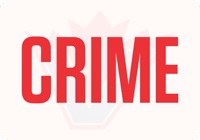THE John Howard Society of British Columbia (JHSBC) have launched their Record Suspension Support Program, which will help people navigate the process of applying to have their criminal record suspended. Receiving a record suspension carries many benefits – including removing barriers to housing and employment.
“For people who have left a criminal past behind, a record suspension lowers barriers to employment, housing, education and other basic needs and opportunities, and ultimately helps them remain positive and law-abiding community members”, said Mark Medgyesi, Executive Director of JHSBC. “We encourage anyone who is eligible for a record suspension to reach out to us – especially Indigenous, Black and other individuals who have been disproportionally affected by a criminal record.”
Funded by Public Safety Canada and delivered in partnership with the Northern John Howard Society of BC, JHSBC’s Record Suspension Support Program is open to residents of the Lower Mainland and Northern B.C. Residents of other regions are encouraged to look for record suspension support providers in their area.
To be eligible for a record suspension, at least three and up to 10 years must have passed since person has met all of the sentencing terms and conditions of their most recent offence. The length of the wait period depends on the date and severity of their first offence. People with certain severe criminal records are not eligible for a record suspension.
While JHSBC’s program will help people through the steps of applying for a record suspension, only the Parole Board of Canada can approve a suspension. Once approved, the record suspension conceals a criminal record when a search is requested for local employment, housing and other routine purposes. It does not remove the record from the federal government’s files. If an individual re-offends after having received a criminal record suspension, the suspension will be revoked.
Individuals can visit www.jhspardonbc.ca to take an eligibility survey and learn more about JHSBC’s Record Suspension Support Program.
Criminal Record History Facts
- Pardoning a person’s criminal record can help decrease repeated crime by 43%. When individuals are connected to housing, mentoring, employment and therapy, an individual is less likely to resort to crime as a means to meet an unmet need[1].
- Almost half of all incarcerated individuals were homeless before being arrested. A record suspension will conceal those records so that sustainable and safe living can be achieved[2].
- Criminal record checks are not a reliable litmus test for employment. Evidence shows that past behaviours to not determine future ones[3].
- Incidents like complaints from a neighbour without prosecution, suicide attempts and charges which were withdrawn are all incidents which show up on a person’s criminal record check[4].
[1] John Howard Society of Ontario. Reintegration in Ontario: Practices, Priorities, and Effective Models. 2016.
2 Ibid.
3 Canadian Civil Liberties Association. False promises, hidden costs: The case for reframing employment and volunteer police record check practices in Canada. May 2014.
4 Canadian Civil Liberties Association. Resources on Police Record Checks. Website, 2014.











